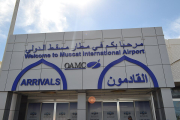
Syria's information ministry announced on Saturday the cancellation of accreditation for two local journalists working for the BBC, citing coverage deemed "false" and "politicized."
The identities of the correspondent and camera operator affected were not disclosed, but the ministry stated that their accreditations were revoked due to the dissemination of "subjective and false information and reports" regarding Syria. The ministry also accused other BBC reports of being "politicized."
In response, the BBC emphasized that its Arabic news service upholds impartiality and provides independent reporting by engaging with individuals across the political spectrum. The BBC affirmed its commitment to delivering unbiased news and information to its Arabic-speaking audience.
The Syrian information ministry did not provide further details when contacted by Reuters, as Saturday is not a working day in the country.
Press freedom in Syria has been severely restricted since the onset of conflict in 2011, with the country ranking 175 out of 180 on the press freedom index compiled by Reporters Without Borders. Media coverage is tightly controlled, requiring accreditations and permissions to report.
Last month, the BBC published a report highlighting alleged "direct links" between the trade of the amphetamine captagon and President Bashar al-Assad's family, as well as the Syrian military. Syria has denied involvement in the captagon trade. The United States, Britain, and the European Union have attributed the production and export of the drug to the Syrian government, identifying Maher al-Assad, the president's brother and head of the army's Fourth Division, as a key figure in the trade. Photo by Chmee2, Wikimedia commons.







































